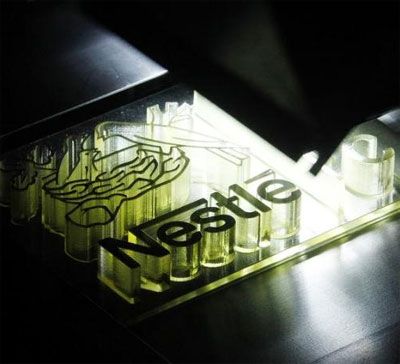Row also provides an opportunity for key competitor ITC (Yippee noodles) to step up market share in the prepared dishes segment
 Nestle India (Nestle) stock has under-performed the S&P BSE Sensex in the past few trading sessions falling 15 per cent owing to rising concerns on sales of its key brand Maggi noodles after some state governments, the latest being Gujarat, Tamil Nadu, Jammu & Kashmir and Uttarakhand, have temporarily banned the product. Nestle India was finally forced to take Maggi off the shelves.
Nestle India (Nestle) stock has under-performed the S&P BSE Sensex in the past few trading sessions falling 15 per cent owing to rising concerns on sales of its key brand Maggi noodles after some state governments, the latest being Gujarat, Tamil Nadu, Jammu & Kashmir and Uttarakhand, have temporarily banned the product. Nestle India was finally forced to take Maggi off the shelves.
While the jury is still out on whether the lead and monosodium glutamate (MSG) content in Maggi is within permissible limits given the mixed views of different states, Nestle's woes seem to have just begun. Channel checks carried out by analysts indicate that Maggi sales volumes have fallen already.
This development will also put downward pressure on the company's premiumisation drive given the unexpected significant investments to protect market share of Maggi. Once Maggi gets a clean chit from the food regulators, Nestle will have to launch multiple damage control measures to restore consumer confidence in the Maggi brand.
The product is key as the prepared dishes segment forms about 30 per cent of Nestle's sales, while Maggi noodles contributes about 22-25 per cent of the company's total revenues, estimate analysts.
Additionally, this row provides an opportunity for key competitor ITC (Yippee noodles) to step up market share in the prepared dishes segment. Currently, Maggi noodles enjoys 72 per cent volume market share in the noodles segment. This in turn could impact EBITDA margin over the next 2-3 quarters, believe analysts.
Notably, after lagging peers on pace of innovations, Nestle had recently accelerated its innovations. However, given the unprecedented events, innovations could take a back seat which in turn can put further pressure on overall volume growth in the near term. The company's volume growth has been softening in recent quarters on account of slowing discretionary demand as well as higher competition across key categories.
Apart from noodles, Nestle offers a range of products such as sauces, pasta, spices under the Maggi brand. Volume growth of these products too can come under pressure going forward while its chocolates and confectionary/milk/beverages/infant food brands may remain relatively unaffected.
Analysts from brokerages such as Edelweiss, ICICI Direct amongst others have reduced their CY15 earnings estimates by 11-18 per cent to factor in falling Maggi volumes and the margin headwinds. After considering the trimmed consensus earnings estimates, Nestle trades at 40 times CY15 price/earnings ratio which is still at a 30 per cent premium to its historical average one-year forward price/earnings ratio of 31 times. The stock valuations thus are at risk to increasing negative news flow.
Of the 8 analysts polled by Bloomberg in June, 2 have downgraded the stock to Sell post this development. Only two of these eight analysts have a Buy rating on the stock with the rest being divided equally between Neutral and Sell recommendations.
Monsoon will impact pure fertiliser companies the most (Coromandel, Chambal) while companies with asset light models (Dhanuka Agritech, Sharda Cropchem) and export oriented companies such as UPL, PI and Rallis India will be affected less.








